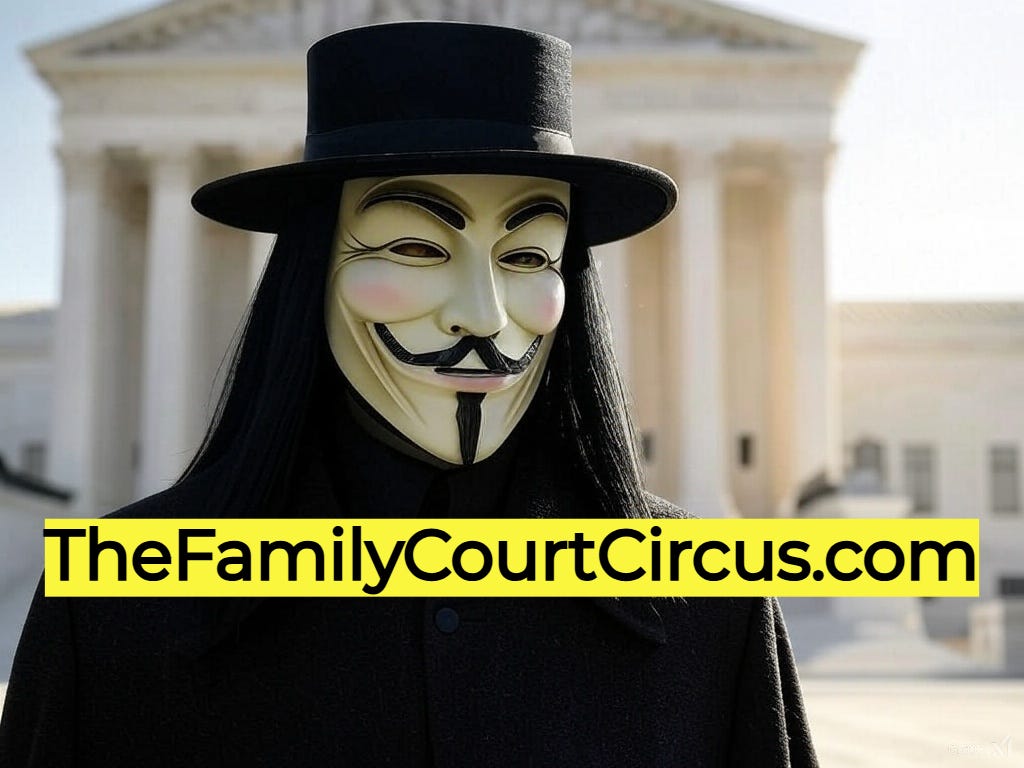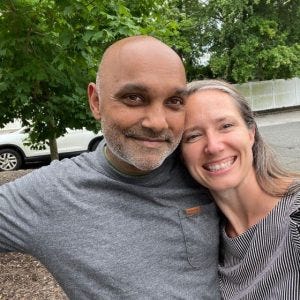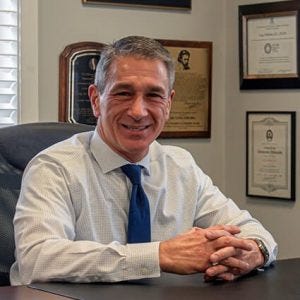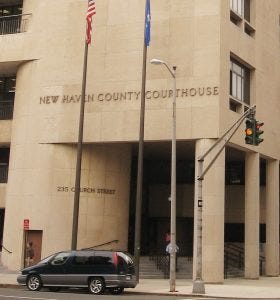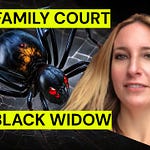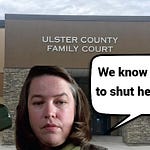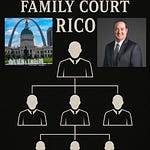By Richard Luthmann
A legal firestorm is raging in Connecticut over attorneys Randi L. Calabrese and Mohan Sreenivasan. They are accused of fraudulently placing a lien on a client’s property while using their own personal troubles to dodge accountability.
Their former client, Dr. Luigi DiRubba, is exposing what he calls the “two-tiered system of justice” in which struggling citizens receive no leniency, but lawyers in turmoil demand special treatment.
Fraud, Lies, and a Default in Court
The scandal started when Calabrese and Sreenivasan, now divorcing, placed a $200,000 lien on a property owned by DiRubba’s company, Innate Realty LLC. The attorneys, then married and operating their firm, pressured DiRubba into signing a mortgage deed to secure alleged legal fees.
“They knew this was fraudulent,” DiRubba said in a grievance filing. “They took advantage of my trust, my financial distress, and my legal ignorance.”
Court records show that the attorneys failed to record the lien until seven months later, a delay DiRubba claims was a calculated move to conceal their misconduct. When he challenged the lien in court, they defaulted—failing to produce discovery materials that would have justified their actions.
“If the lien was legitimate, why didn’t they defend it?” DiRubba asked. “Because submitting the documents would have exposed their fraud.”
No Breaks in Family Court—So Why Should Lawyers Get One?
The crux of DiRubba’s grievance isn’t just about the fraudulent lien. It’s about the hypocrisy.
“When I was in family court, no one cared about my work obligations,” DiRubba said. “I had to be in court, no matter what. My livelihood didn’t matter. But now these lawyers want special treatment because their law firm collapsed and they’re going through a divorce?”
His frustration was echoed in a segment on The Unknown Podcast, where journalists Richard Luthmann and Michael Volpe discussed the case.
“This is a double standard,” Luthmann said on air. “Judges don’t care if you’re a surgeon with a life-or-death operation—they tell you to show up to court. But suddenly, two divorce lawyers expect sympathy because they made a mess of their own lives?”
Volpe added: “If this were anyone else, they’d be crushed by the legal system. But because they’re attorneys, they’re looking for an exit ramp.”
Grievance Filings Expose a Pattern of Corruption
DiRubba’s official filings lay out a damning case against both attorneys.
Fraudulent Lien Filing: The grievance accuses Calabrese and Sreenivasan of knowingly filing a fraudulent mortgage deed to extract money under false pretenses.
Bad-Faith Litigation: After filing the lien, the attorneys allegedly used it as a weapon, dragging DiRubba through legal battles without a valid claim.
Fiduciary Breach: As his attorneys, they had a legal duty to act in his best interest. Instead, they used their authority to enrich themselves.
Discovery Default: When pressed for evidence, they failed to comply with court orders, resulting in their default.
DiRubba’s filing is blunt: “They lied, they manipulated, and now they want sympathy.”
Judge Diana’s Ruling: Ethics Violations and a Public Rebuke
Judge Leo V. Diana weighed in on the attorneys’ actions, issuing a decision criticizing their reckless legal maneuvers. He noted their pattern of misrepresentation, their failure to understand court procedures, and their “unprofessional conduct.”
In one instance, Sreenivasan was caught threatening opposing counsel in open court, saying, “Everyone is getting sued, and that’s what we’re good at.”
The judge also condemned their failure to prepare for trial and their filing of misleading motions. Although he stopped short of imposing punitive sanctions, he ordered both attorneys to complete extra legal ethics training.
“This is about protecting the integrity of the judicial system,” Judge Diana stated in his ruling.
No Breaks for Anyone—Except Lawyers?: Holding Lawyers Accountable
DiRubba is determined to see real consequences. He is calling for full disbarment of both attorneys, arguing that their misconduct is too severe for mere ethics training.
“Their whole defense is built on excuses,” he said. “They claim they’re struggling because of their divorce. So what? Should the law only apply when it’s convenient?”
The Statewide Grievance Committee will decide the attorneys’ fate in the coming months. But for DiRubba, this case represents something bigger than just his personal fight.
“This is about justice,” he said. “Regular people don’t get a break. Lawyers shouldn’t either.”



